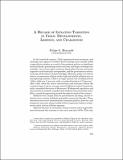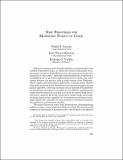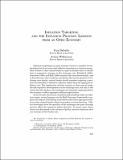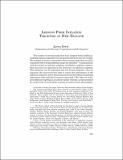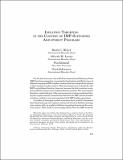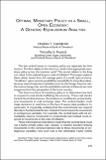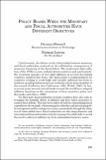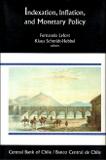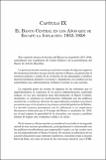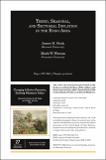Buscar
Mostrando ítems 11-20 de 81
A decadeof inflation targeting in Chile: developments, lessons, and challenges
In the twentieth century, Chile experienced most monetary and exchange rate regimes. Periods of fixed exchange rates usually ended in speculative attacks as a result of inconsistent policies or significant external shocks, generating serious real costs and larger exchange rate volatility.
New frontiers for menetary policy in Chile
Inflation targeting can be broadly defined as a framework for the conduct of MONETARY POLICY in which the central bank guides its instruments in order to hold inflation near a preannounced target or to bring back to the target. Although understanding the framework is straightfoward, its practical ...
Inflation targeting and the inflation process: lessons from an open economy
Inflation targeting in an open economy insolves a number of complexities that do not arise with inflation targeting in a clises economy. One of these is that central banks in open economies have to decide how to repond to changes in the exchange rate.
Lessons from inflation targeting in New Zealand
The number of central banks that have adopted formal inflation targeting regimes expanded over the past decade from only one to eight. The number increases even further when central banks that set policy consistent with a formal inflation target are included. Commesurate with the formal or informal ...
Inflation targeting in the context of IMF-Supported adjustment programs
For the last few years, the staff of the Iternational Monetary Fund (IMF) has been engaged in assessing the functioning and effectiveness of inflation targeting in IMF member countries that have adopted this scheme as their monetary policy anchor. This involvement was restricted to the IMF's surveillance ...
Optimal monetary policy in a small, open economy: a general-equilibrium analysis
The two central issues in monetary policy are separated by time horizon. The first relates to the short run: what is the appropriate monetary policy across the business cycle? The second relates to the long run: waht is the optimal long-run rate of inflation? This paper explores these classic issues ...
Policy biases when the monetary and fiscal authorities have different objectives
Until recently, the debate on the relationship between monetary and fiscal authorities centered on the inflationary consequences of mentary financing of the fiscal deficit. The moderately high inflation of the 1970s in some industrialized countries and, particularly, the recurring episodes of very ...
Indexation, inflation, and monetary policy
Although indexation policies and practices are common in many markets and economies, their implications for market efficiency and price stabilization remain controversial. This book contributes to the literature on indexation and inflation by including nine articles that are at the research frontier ...
El Banco Central en los años que se escapó la inflación: 1953-1958
Este capítulo abarca la historia del Banco en el período 1953-1958 coincidente con el gobierno de Carlos Ibáñez y de la presidencia del Banco de Arturo Maschke. La primera sección constituye una breve reseña de algunos aspectos del momento histórico en que estaba inserto el Banco en particular el ...
Trend, seasonal, and sectorial inflation in the Euro Area
A central focus of monetary policy is the underlying rate of inflation
that might be expected to prevail over a horizon of one or two years.
Because inflation is estimated from noisy data, the estimation of
this underlying rate of inflation, which we refer to as trend inflation,
requires statistical ...

